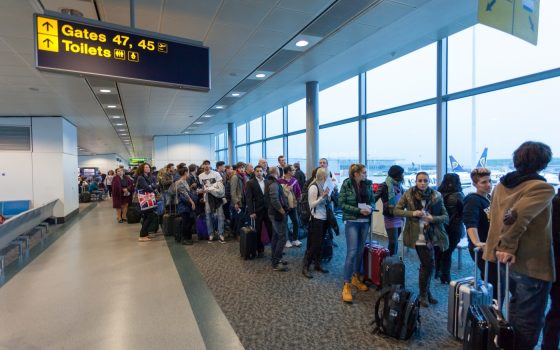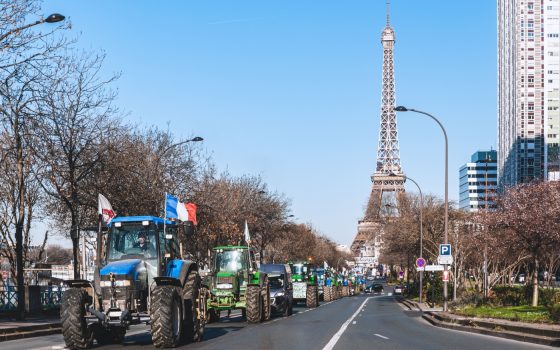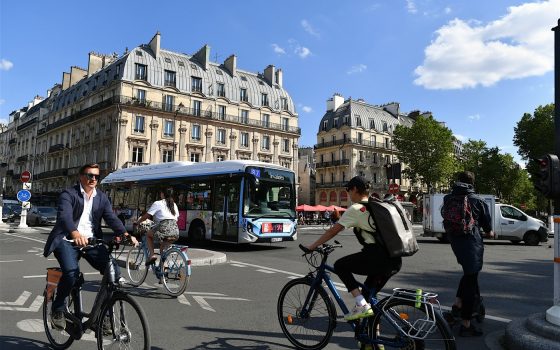Three lessons from Bogota on making cities safer for women
We need to ensure everyone has the right to move around freely and participate in public life
30 March 2021
In the UK, Sarah Everard’s murder has prompted debate around women’s safety, with 80% of women of all ages having been sexually harassed in public spaces. In Bogota, work is being done on gender equity in cycling and public spaces in order to make it more inclusive. So, what can the UK learn from the Colombian capital on making our towns and cities safer for women?
The focus on cycling in Bogota is an important lesson – although there’s been a cycling boom in cities worldwide during the pandemic, this doesn’t mean there’s more diversity in cycling. In the UK, cycling levels increased by up to 200% on weekends and 100% on weekdays during the first national lockdown, and 14% of UK adults say they will continue cycling once lockdown restrictions lift. But for it to be more diverse and inclusive, it’s important to tackle inequalities in cycling head on.
In 2019, Bogota city officials established a public policy goal of gender equity in city cycling, the 50/50 More Women on Bicycles initiative. Just 25% of cyclists in Bogota are women, which isn’t dissimilar to the gender gap in cycling in London, where 26% of cycling journeys are made by women. The initiative aims to help ensure that investments in cycling are equitably distributed across the population. By putting gender equity on the urban policy agenda, the city can then invest time and mobilise resources towards better understanding and addressing gender and other inequalities in cycling.
It’s about ensuring that women and girls have the right to safely and freely move around, the right to a life free of violence and the right to access and enjoy all the opportunities that the city offers
But it’s not just about getting more women on bikes. It’s about ensuring that women and girls have the right to safely and freely move around, the right to a life free of violence and the right to access and enjoy all the opportunities that the city offers. This explicit focus on gender equity in cycling has led to increased collaboration between government departments and more meaningful community engagement. As a result, city officials, cycling campaigners, feminist activist groups and local women are working together to shine a light on broader gender inequalities in society, which inevitably manifest in cycling. By simply asking – and truly listening to – women about their experiences cycling or just being out and about, officials have become more aware of some of their blind spots when it comes to creating inclusive public spaces and transport systems.
This brings us to our second lesson: community engagement. An idea that’s been gaining traction is creating cycling infrastructure with integrated services. Active and sustainable transport isn’t just about movement, people also need safe places to stop and rest where there’s no pressure to spend money, particularly in light of the increasing privatisation of public space. Stakeholders in Bogota are demanding a network of cycling infrastructure with integrated services like benches, water fountains, public toilets, safe cycle parking and air pumps.
Cycling infrastructure with integrated services can also support trips that are related to care, health and shopping, all of which are disproportionately made by women. In Bogota, nearly 22% of women’s cycling trips are to pick up/drop off someone, compared to 6% for men. During the pandemic, more female essential workers in Bogota’s health and social care sectors were cycle commuting (55%) compared to women working in other sectors (28%). And female essential workers had longer commutes. Integrated services could benefit people with longer commutes, those newer to cycling and those making more encumbered care-related journeys.
Active and sustainable transport isn’t just about movement, people also need safe places to stop and rest where there’s no pressure to spend money
Finally, a third lesson from Bogota is to better understand and respond to women’s perceptions and experiences of safety in public spaces. All the cycling infrastructure in the world won’t protect women from street harassment, unwanted advances and sexual assault in public. Since 2015, Bogota has been conducting gender safety audits, which UN Women recommend as best practice to make cities safer for women and girls. Bogota was the first city to do gender safety audits of cycle routes to learn more about how safe women feel while cycling in the city. These insights informed tangible improvements, like better street paving, more cycle parking and more public art.
Built environment solutions are important but they can’t alone make cities safer for women and girls. So, Bogota’s District Secretary of Women has been investing in campaigns to address machismo, patriarchy and gender-based violence in public space. This includes awareness campaigns signposting to local resources for those who have been sexually harassed or assaulted. As we’ve seen with Sarah Everard’s case and the ensuing clashes with the police across the UK, it’s clear that more policing doesn’t mean safer cities. Instead, we need holistic solutions that rely on community initiatives. This means more investment in bystander intervention training and building a culture of collective responsibility so that we, as a society, can stand up and intervene in harassment and violence.
The pandemic and recent events have triggered a rethink about public space. With calls for a green and just recovery coming out of this crisis, encouraging more people to walk and cycle in and around our cities could be crucial. But if everyone is to share in this recovery, we need to create public spaces that are inclusive and safe, ensuring that everyone has the right to move around freely and participate in public life.
Image: iStock
Topics Transport Inequality Environment






